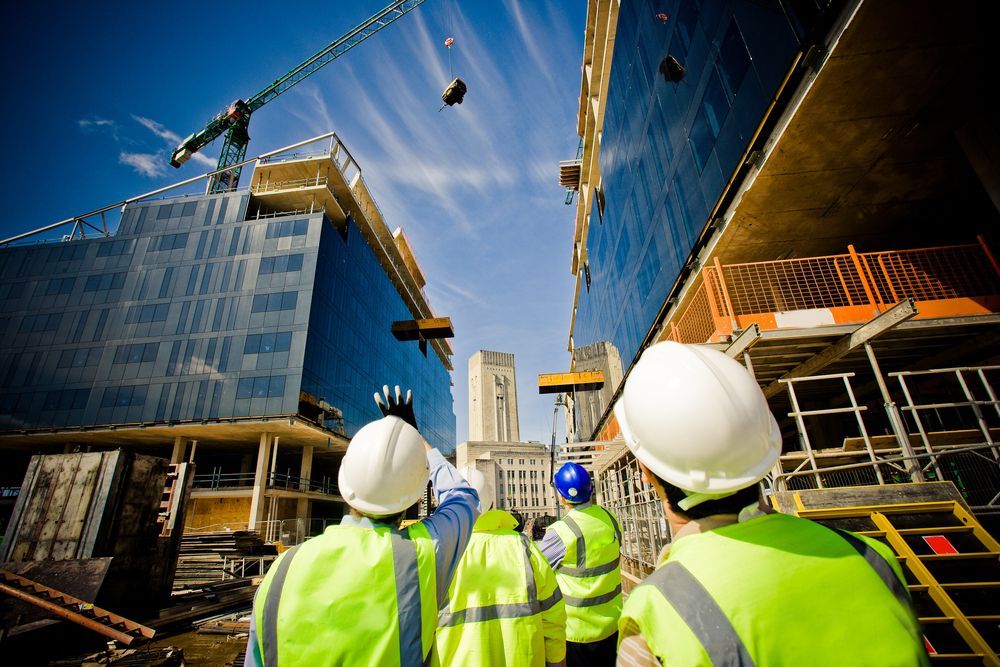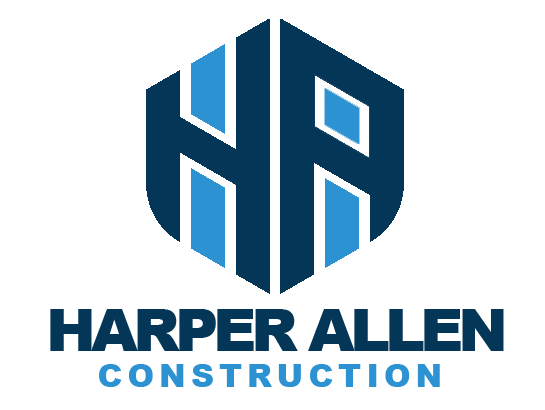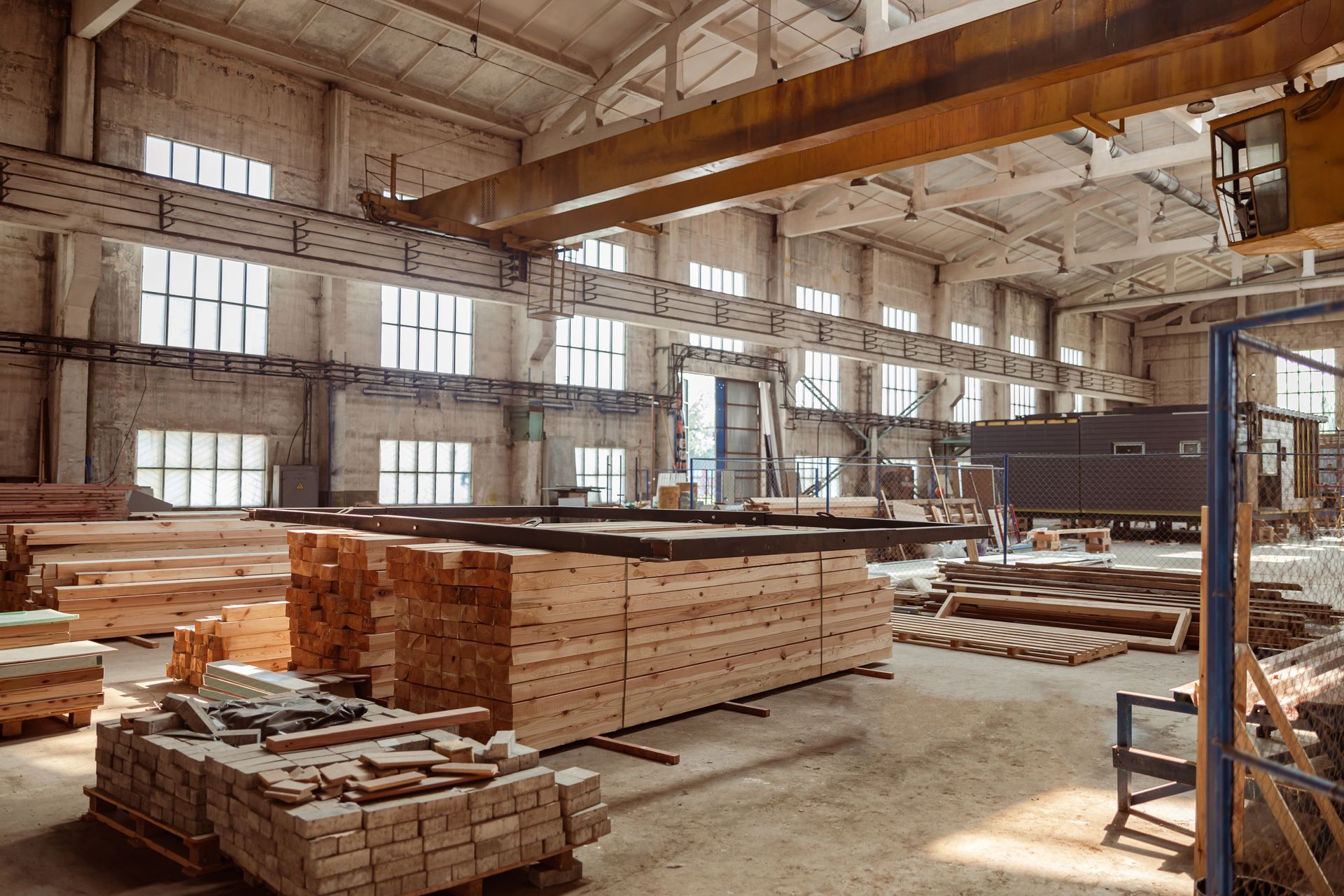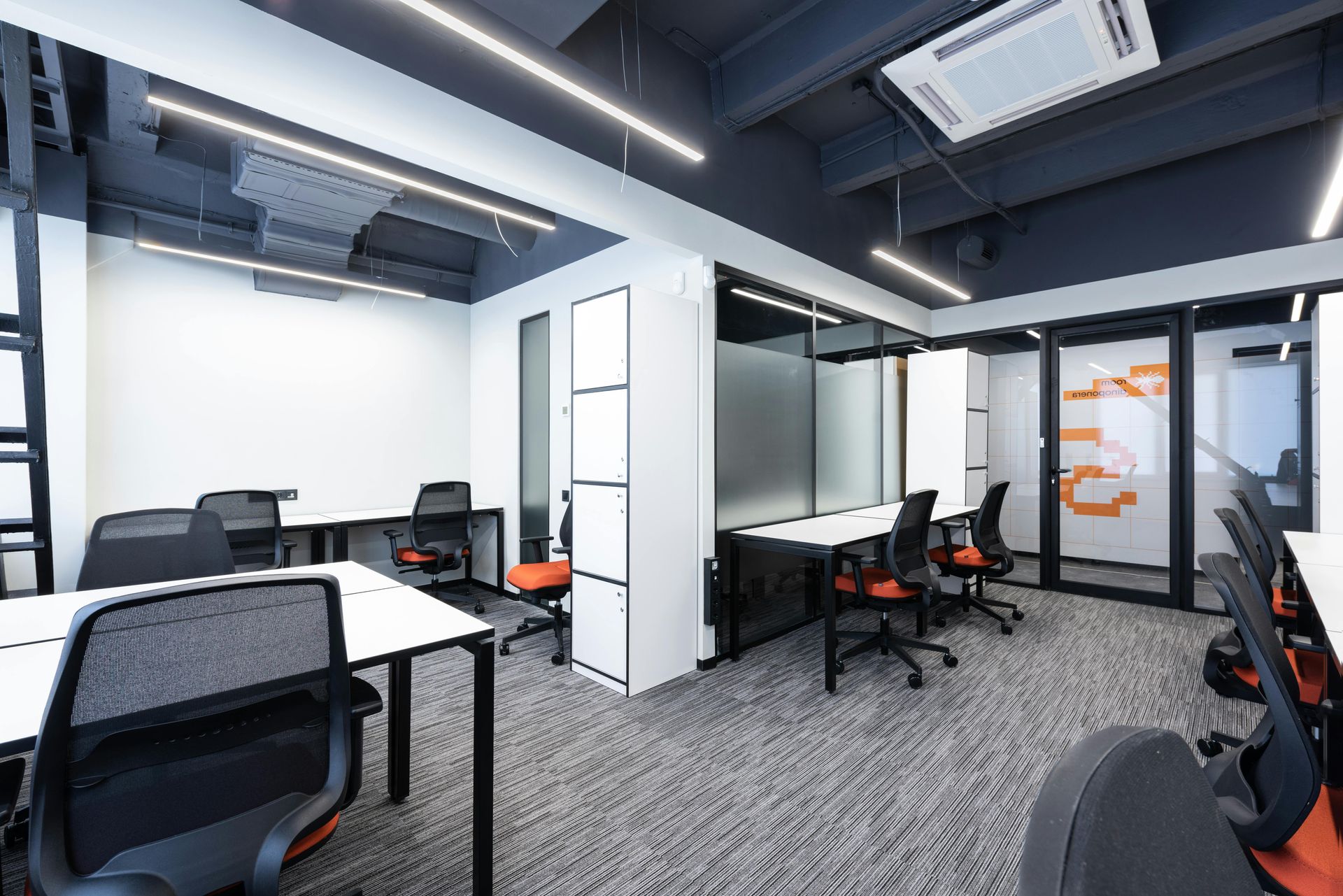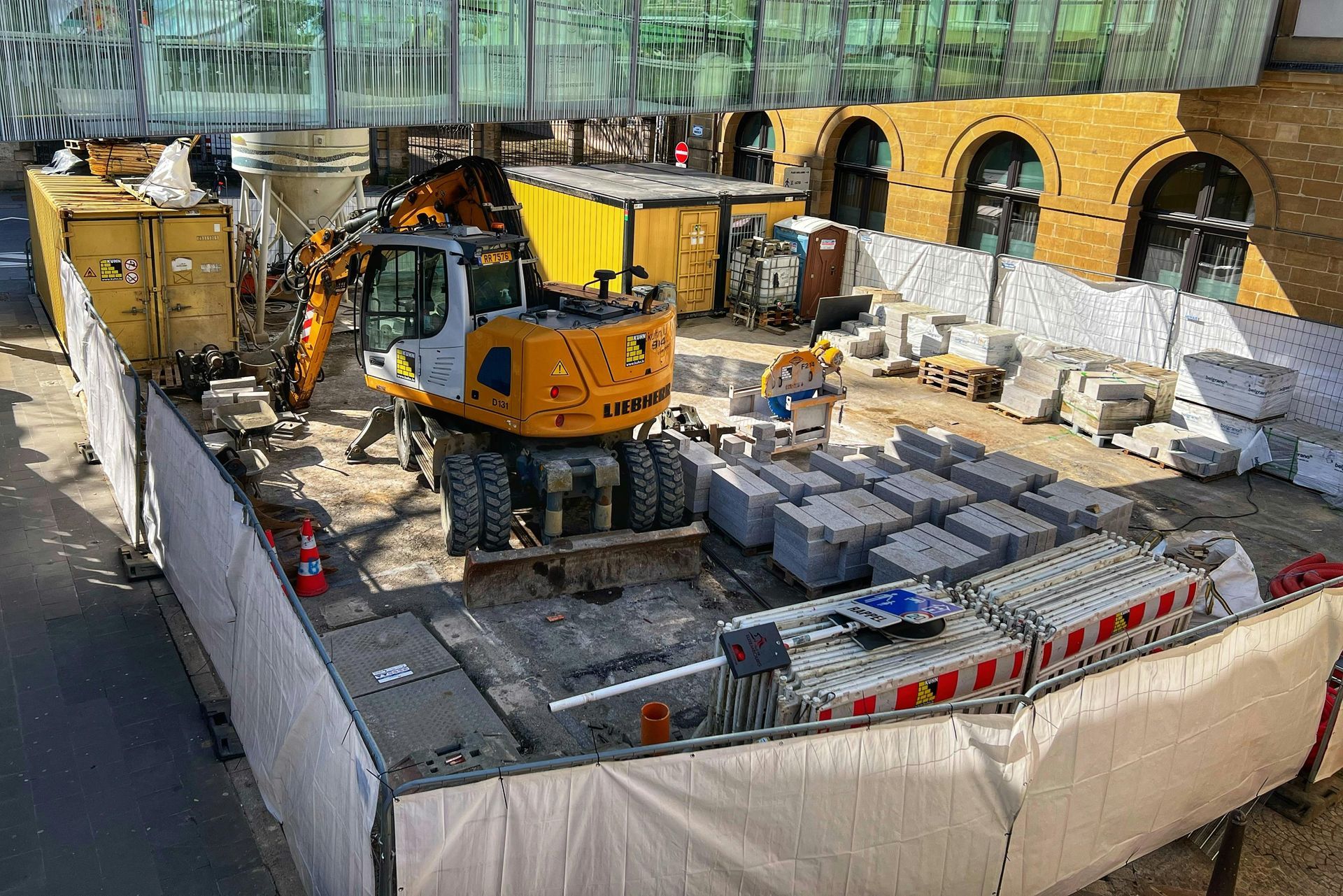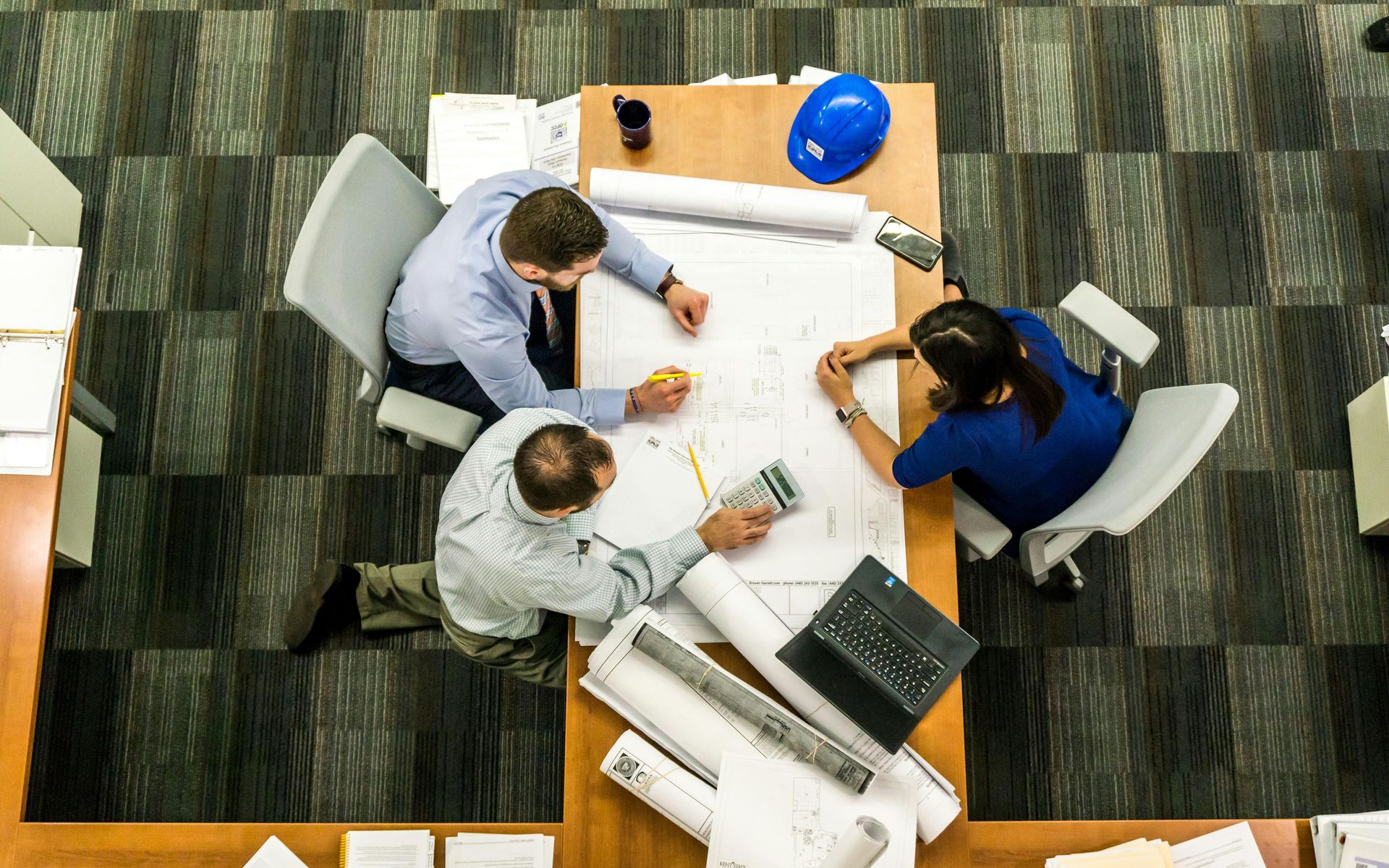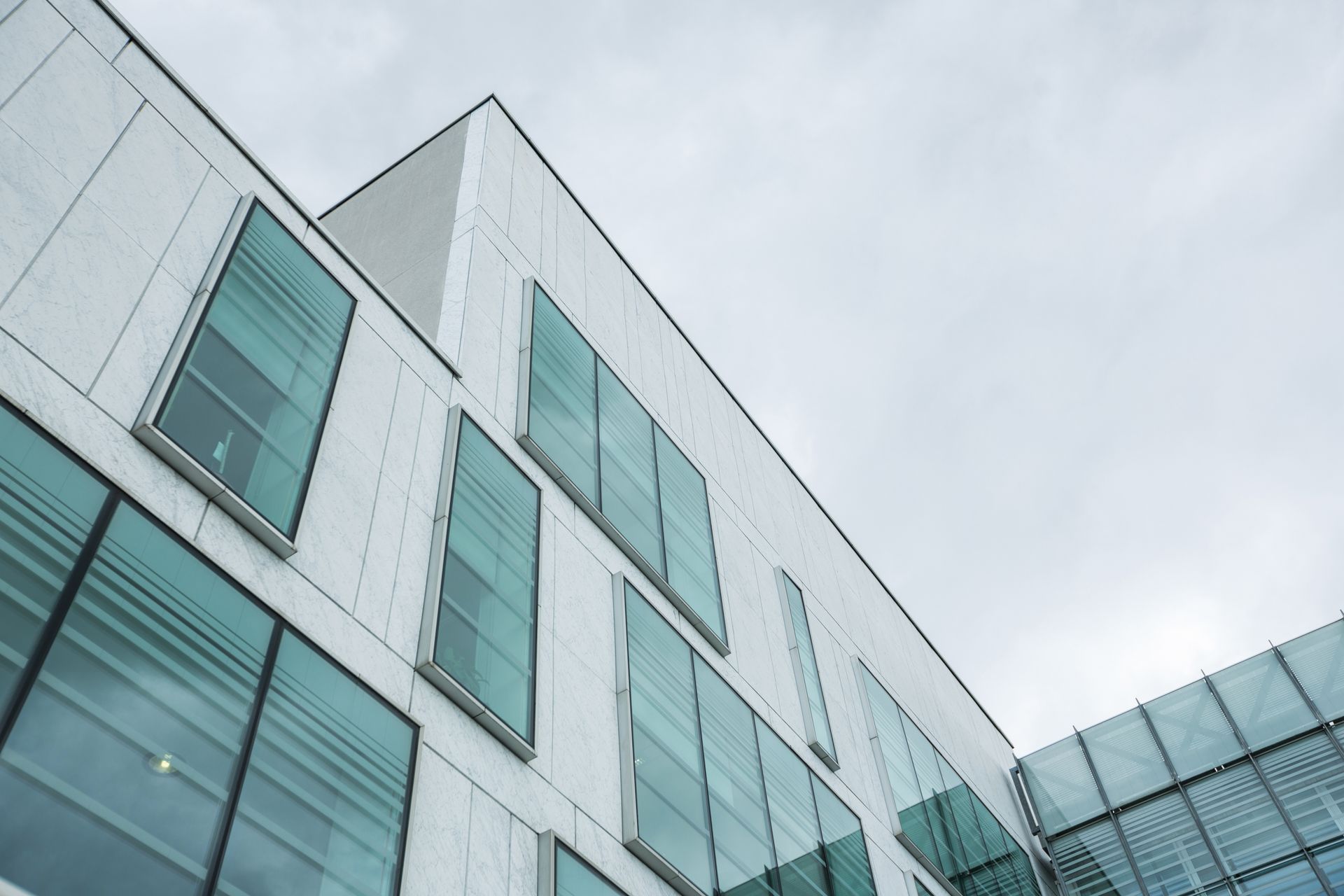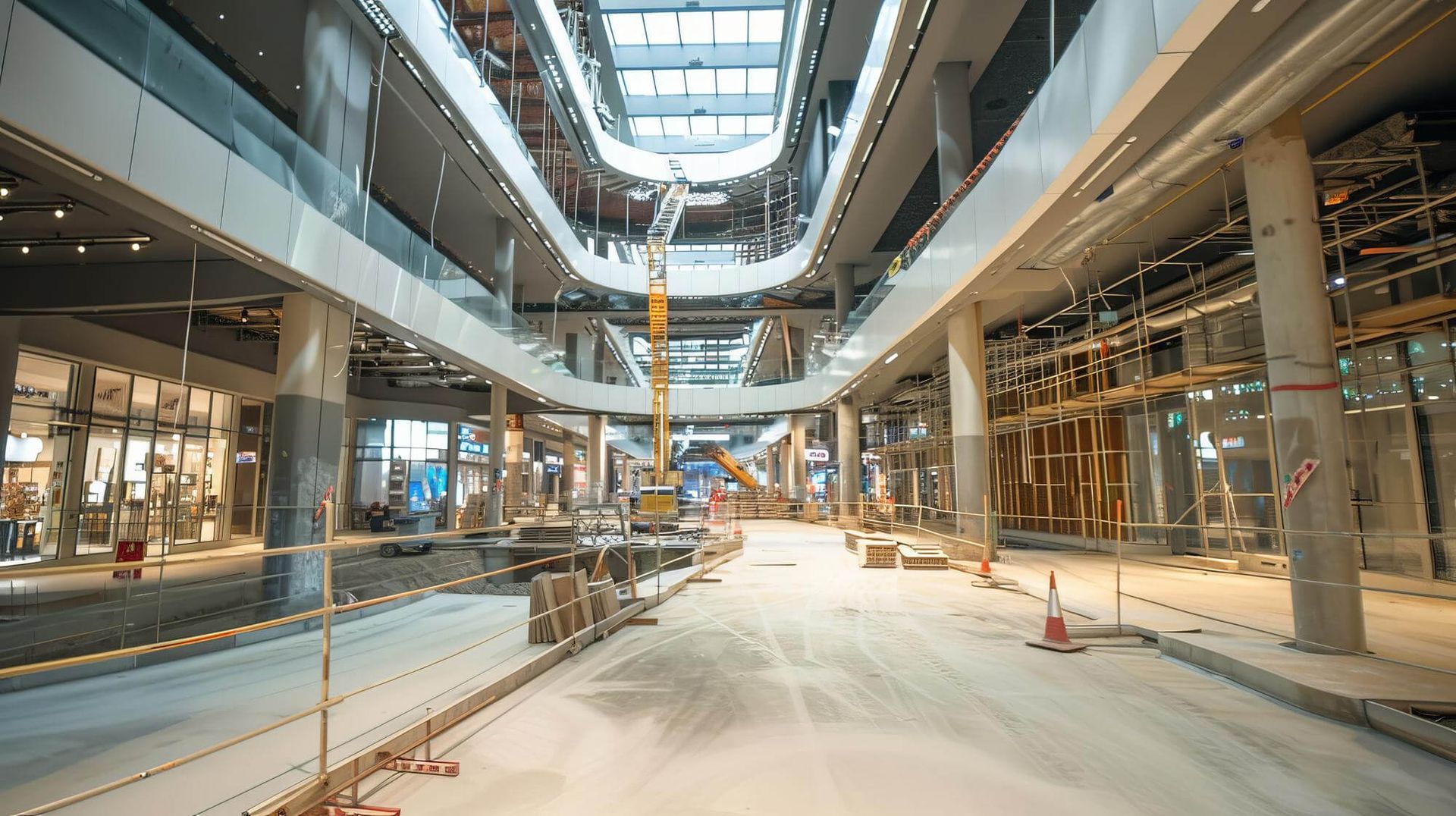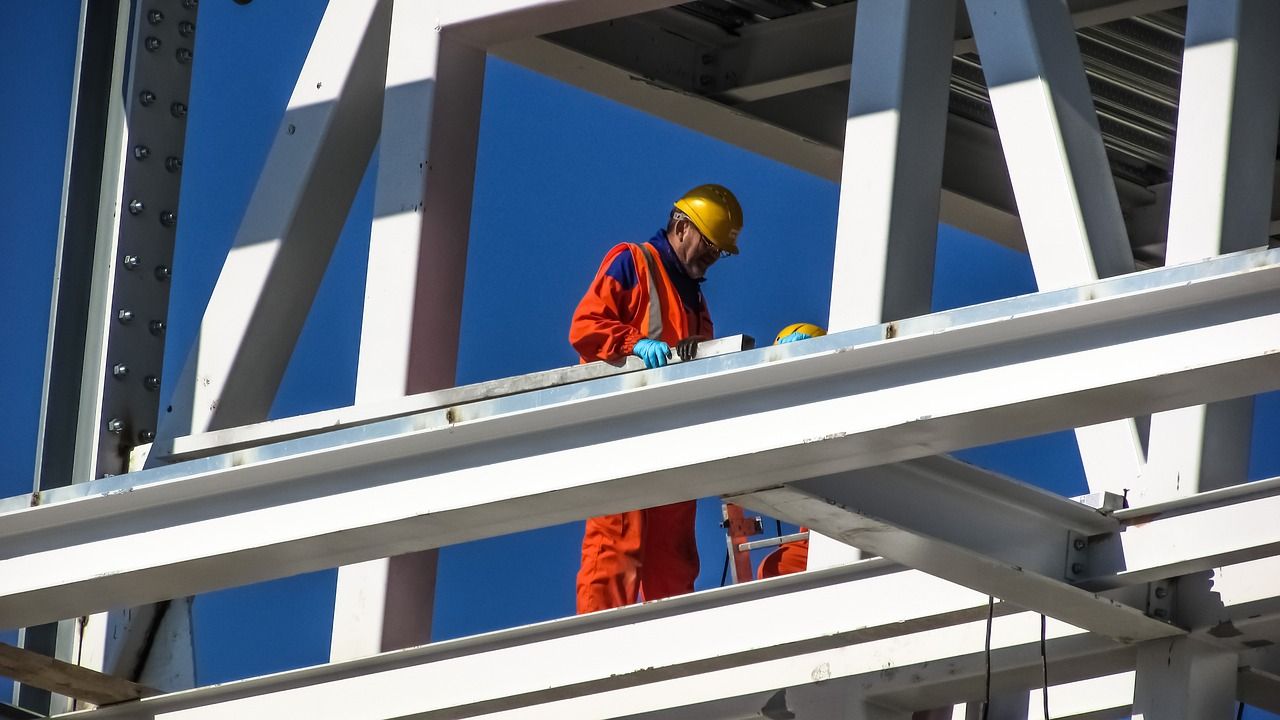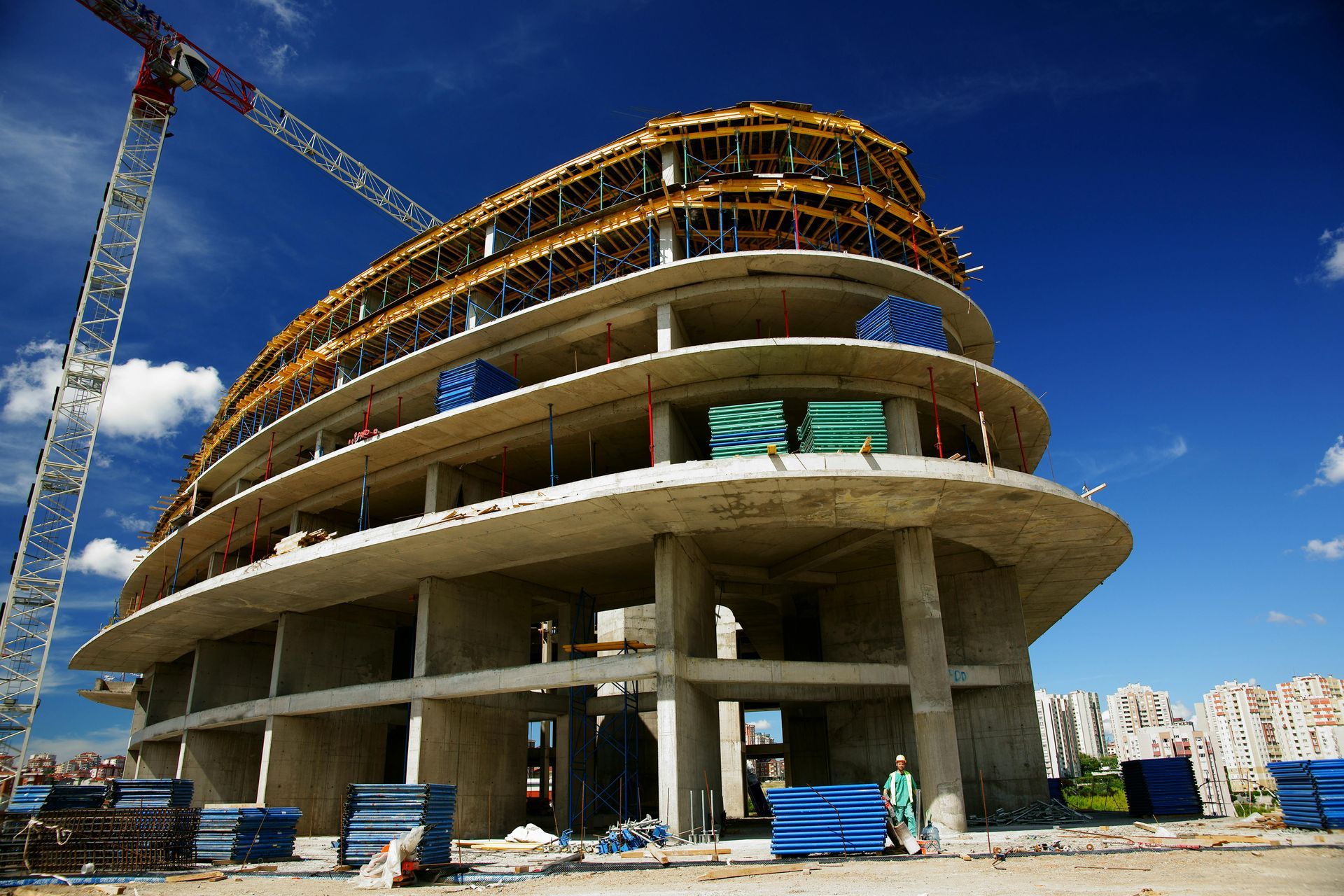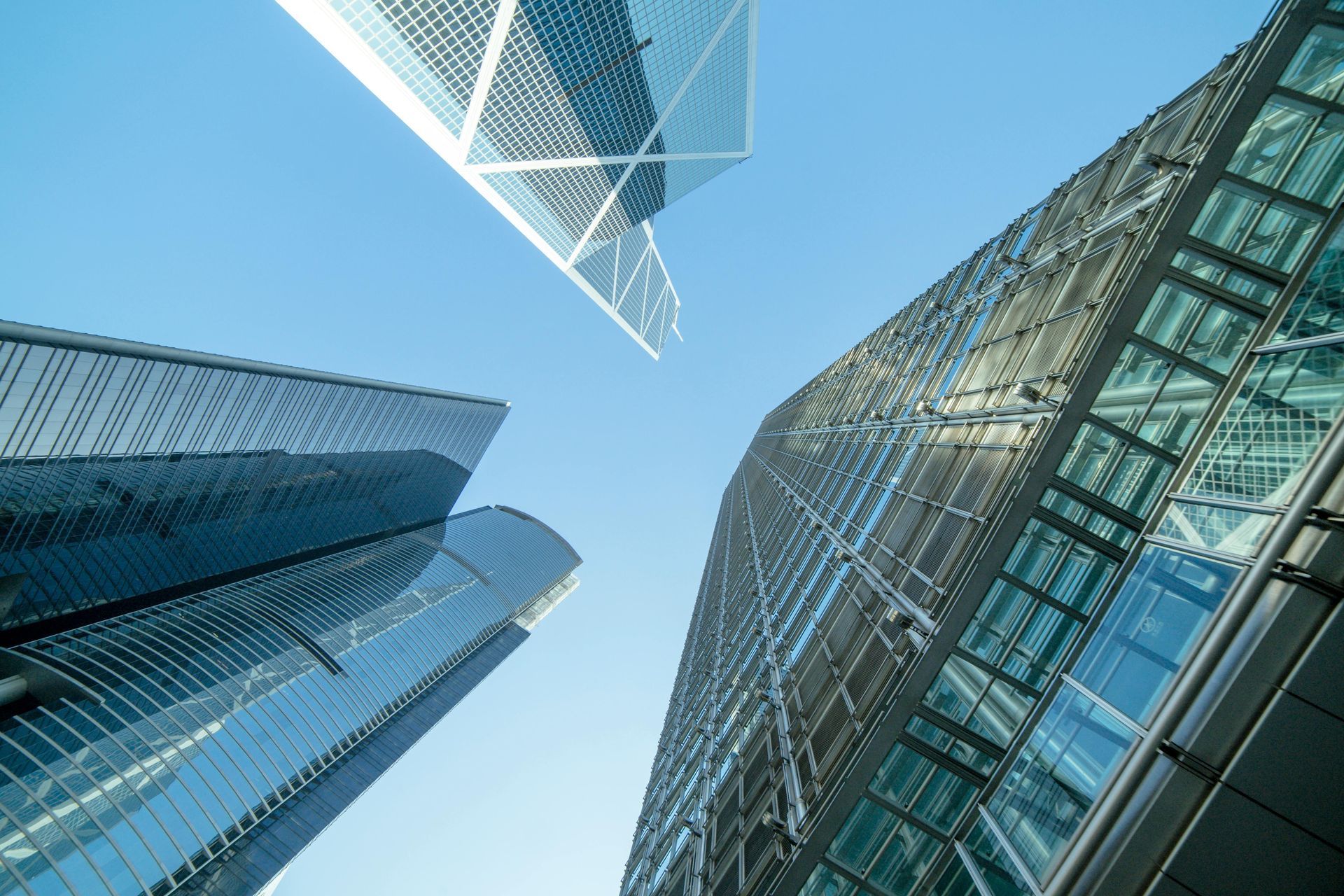Common Construction Materials Used in Commercial Buildings and Their Benefits
When it comes to constructing commercial buildings, the choice of materials is critical. Not only do materials affect the structure's durability, but they also influence cost, energy efficiency, maintenance requirements, and overall appearance. Whether it's an office complex, warehouse, retail space, or industrial facility, the right materials ensure safety, functionality, and long-term value.
At
Harper Allen Construction, we’re proud to be a trusted commercial building contractor in Lucasville, OH, providing top-tier commercial building services throughout the region. Our experience has taught us that while each project is unique, several materials are commonly used across commercial construction projects due to their proven reliability and benefits.
1. Concrete: The Foundation of Strength
In the realm of commercial construction, concrete stands as a truly indispensable material. This fundamental building block is created through the combination of cement, water, and aggregates such as sand and gravel. Its versatility allows for widespread application, from laying solid foundations and constructing sturdy walls to creating durable flooring, practical sidewalks, and even aesthetically pleasing decorative elements.
Why choose concrete?
- Exceptional Durability: Concrete resists fire, water, and pests, making it ideal for buildings that need to last decades with minimal degradation.
- Versatility: It can be poured into nearly any shape, making it adaptable to a wide variety of structural needs.
- Energy Efficiency: Its thermal mass helps regulate interior temperatures, reducing energy costs in larger commercial spaces.
As a seasoned commercial building contractor, Harper Allen Construction relies on concrete for everything from foundational work to exterior hardscaping.
2. Structural Steel: High Strength and Flexibility
Steel is another staple of commercial construction and is particularly favored by industrial builders due to its strength and flexibility. From high-rises to manufacturing facilities, structural steel is used for columns, beams, trusses, and framing systems.
Advantages of steel in commercial building projects:
- Speed of Construction: Steel components are often prefabricated, allowing for quicker assembly and reduced labor time.
- High Strength-to-Weight Ratio: It provides robust structural support without excessive bulk.
- Design Freedom: Ideal for buildings that require large, open interior spaces with minimal columns or supports.
Steel also lends itself well to modern architectural designs and can be combined with other materials like glass or concrete for both functional and aesthetic purposes.
3. Glass: Beauty and Functionality in One
Modern commercial buildings are increasingly incorporating glass not just for windows, but for entire facades, partitions, and atriums. Beyond its visual appeal, glass plays a valuable role in improving energy efficiency and natural lighting.
Benefits of glass in commercial buildings:
- Natural Light Enhancement: Maximizes daylight, which can reduce reliance on artificial lighting and improve occupant well-being.
- Thermal and Acoustic Insulation: High-performance glass options like low-E (low emissivity) and double glazing offer superior insulation and soundproofing.
- Sleek Aesthetic: Adds a contemporary and professional look, which is particularly valuable in office buildings, hotels, and retail locations.
When applied thoughtfully, glass contributes to both form and function—something Harper Allen Construction integrates into many of our commercial building services.
4. Brick and Masonry: Classic and Resilient
Brick, stone, and concrete masonry units (CMUs) have been used for centuries in commercial construction, and for good reason. These materials offer excellent fire resistance, noise reduction, and long-term durability.
Why brick and masonry remain popular:
- Longevity: Properly installed masonry can last for over a century with minimal upkeep.
- Weather and Pest Resistance: Unlike wood, masonry doesn’t rot or get infested.
- Energy Efficiency: Brick possesses thermal mass, a characteristic that aids in stabilizing interior temperatures.
As experienced industrial builders, we often recommend brick or CMU construction for clients looking for traditional aesthetics combined with modern performance.
5. Engineered Wood: A Sustainable Alternative
Wood is making a comeback in commercial construction, especially engineered wood products like laminated veneer lumber (LVL), cross-laminated timber (CLT), and glulam beams. These materials combine the natural beauty of wood with structural strength and precision.
Benefits of engineered wood:
- Eco-Friendly: Wood is a renewable material, and many engineered products are made from sustainably harvested forests.
- Lightweight Yet Strong: Easier to transport and install, reducing labor and shipping costs.
- Aesthetic Warmth: Adds a natural element to interiors, particularly in offices, schools, and hospitality projects.
At Harper Allen Construction, we use engineered timber in projects where sustainability, speed, and design matter. It’s a great option for developers seeking LEED certification or other green building standards.
Build with Harper Allen Construction: Your Local Commercial Experts
Whether you're constructing a new retail space, an office park, or an industrial warehouse, choosing the right materials is just the beginning. Equally important is selecting a construction partner with the experience and integrity to bring your vision to life.
At
Harper Allen Construction, we provide expert commercial building services in Lucasville, OH, and surrounding areas. Our team of licensed professionals is committed to delivering quality workmanship, clear communication, and projects that meet your budget and timeline. We do commercial construction and retail fit-outs.
Ready to build your future? Contact Harper Allen Construction today at
(740) 935-3227 to discuss your commercial building needs. Let us be your trusted partner in creating a space that meets your specific requirements and stands the test of time.
FAQs
What is the most commonly used material in commercial buildings?
Concrete is the most widely used due to its strength, versatility, and longevity. It forms the backbone of foundations, walls, and floors.
Is steel better than concrete for commercial structures?
Both materials have their place—steel offers design flexibility and fast construction, while concrete is unmatched for foundational and load-bearing uses.
Can wood be used in commercial construction?
Yes, especially engineered wood products. They offer structural strength, are environmentally friendly, and are great for modern designs.
Why is glass used so extensively in commercial buildings?
Glass allows natural light into the space, enhances energy efficiency with the right treatments, and contributes to a modern, open look.
What material should I choose for my commercial project?
The right material depends on the project’s size, budget, design, and use. A professional commercial building contractor like Harper Allen Construction can guide you through your options.
